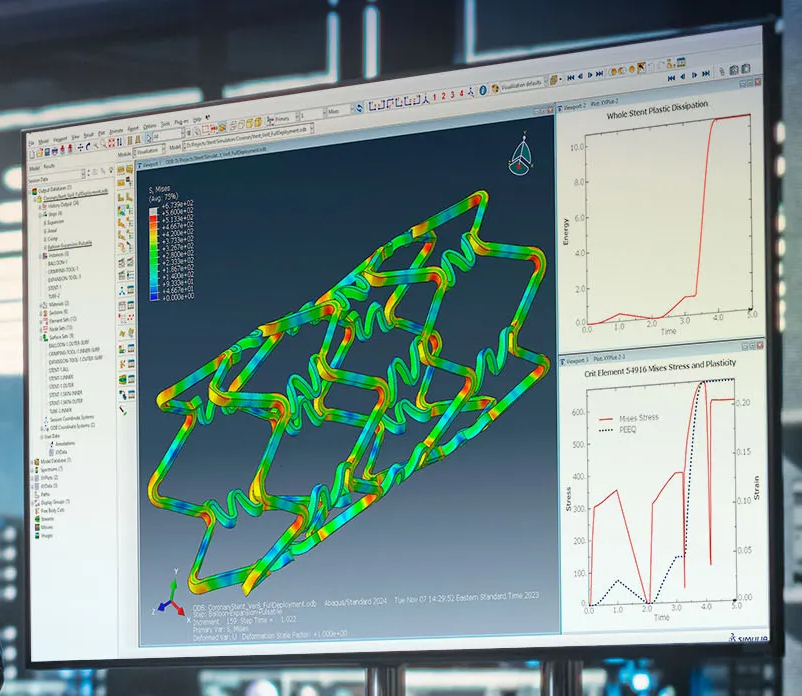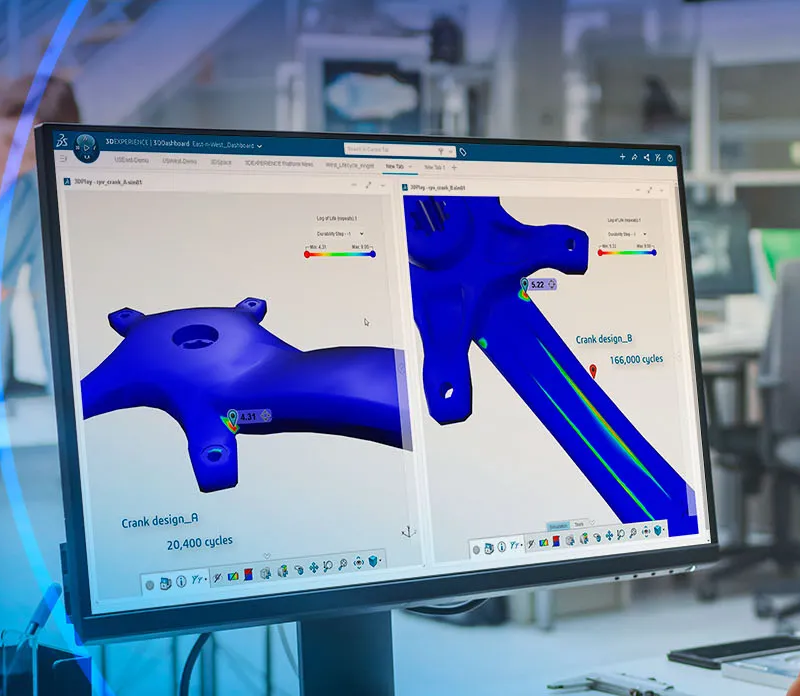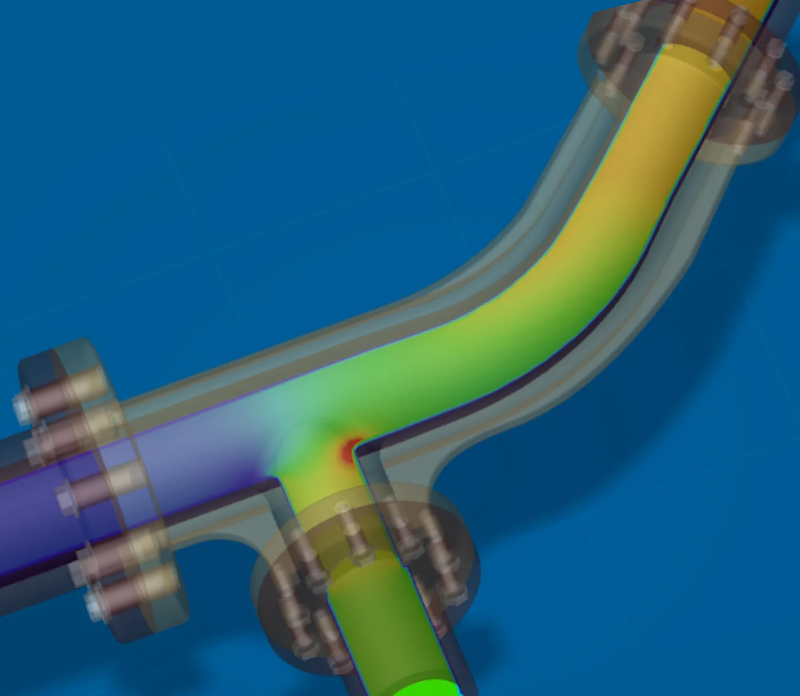Advanced Finite Element Analysis for Mechanical and Civil Engineering
SIMULIA Structural Simulation
SIMULIA Structural Simulation
SIMULIA’s structural simulation technology leverages the Finite Element Method (FEM) to provide deep insights into how products, assemblies, and processes respond to real-world conditions. With virtual prototypes and precise performance predictions, it enhances product quality, accelerates prototyping, and minimizes risks, all while adhering to industry standards for safety, durability, and reliability.
Abaqus is a versatile Finite Element Analysis (FEA) software that enables engineers to simulate complex real-world problems, offering a broad library of element types and material models for stress, deformation, heat transfer, and more, across various industries.
Explore More

fe-safe is a leading fatigue analysis software that integrates seamlessly with major FEA suites, offering accurate multiaxial fatigue analysis and advanced durability solutions for complex loadings and materials, including elastomers and welded joints.
Explore MoreTosca Optimization suite offers advanced structural and fluid flow optimization using FEA and CFD simulations, enabling lightweight, durable, and high-performance designs. It accelerates development cycles by providing automatic, innovative design solutions while minimizing material use and costs.
Explore More
Unlock the power of simulation to enhance product performance, quality, and durability.
Use Abaqus and fe-safe for precise structural insights
Optimize designs early to prevent issues and improve performance
Replace physical prototypes with virtual testing to reduce costs and time
Ensure consistent product lifespan through advanced assessments
Meet safety, noise, and vibration standards for improved user experience
Explore real-world applications that drive innovation through simulation and virtual testing.
Use virtual prototypes to test and refine product designs under real-world stressors before physical production.
Assess stiffness, strength, and failure modes to maintain product reliability and safety.
Cut costs by identifying design flaws early, eliminating the need for expensive physical testing.
Simulate and mitigate noise and vibration, ensuring comfort and user satisfaction.
Test product longevity and reliability over time without the need for real-world testing scenarios.